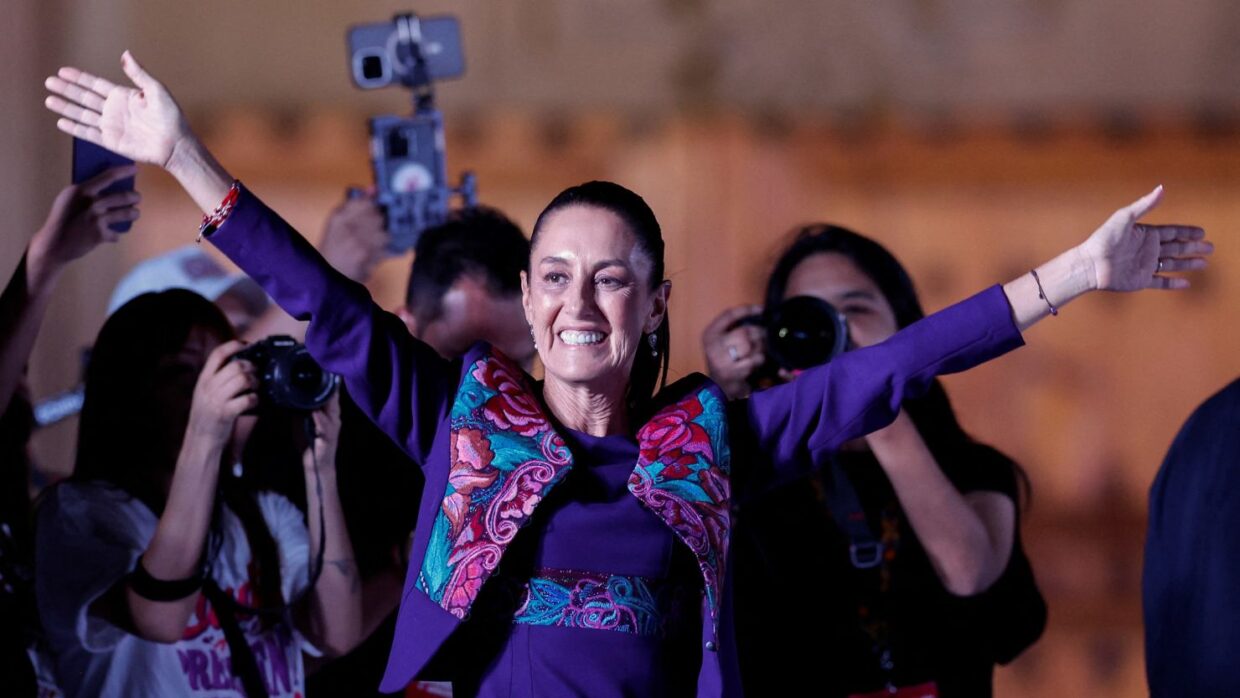MEXICO CITY – Claudia Sheinbaum has made history by becoming Mexico’s first female president in the nation’s 200-year history. This monumental victory was confirmed by the National Electoral Institute, which announced that Sheinbaum secured between 58.3% and 60.7% of the vote. Her closest competitor, opposition candidate Xóchitl Gálvez, garnered between 26.6% and 28.6%, while Jorge Álvarez Máynez received between 9.9% and 10.8%.
Table of Contents
Breaking Barriers
Sheinbaum’s election is not only significant for her gender; she is also the first person of Jewish heritage to lead Mexico, a predominantly Catholic country. President López Obrador congratulated her, acknowledging her wide-margin victory.
Public Sentiment
Support from the Youth
Fernando Fernández, a 28-year-old chef, expressed his support for Sheinbaum, citing her connection to López Obrador, popularly known as AMLO. Fernández hopes Sheinbaum will address issues AMLO could not, such as the high price of gasoline, crime, and drug trafficking.
Mixed Feelings
In San Andres Totoltepec, a neighborhood on the outskirts of Mexico City, 34-year-old homemaker Stephania Navarrete planned to vote for Sheinbaum despite her reservation s about López Obrador and his party. Her decision underscores the complex sentiments among voters.
Campaign and Election Day
A Call to Action
As she cast her vote, Sheinbaum described the day as “historic” and encouraged everyone to participate in the election. “You have to vote, you have to go out and vote,” urged the former Mexico City mayor.
Voting Challenges and Encouragements
Special voting posts, such as one at a large medical campus in Mexico City, allowed on-duty professionals like doctors and nurses to vote. Meanwhile, thousands of stores offered free goods to customers who showed inked fingers, a security measure to prevent double voting.
Election Oversight
Elections in Mexico are managed by the independent National Electoral Institute, which ensures that the process remains impartial and fair.




